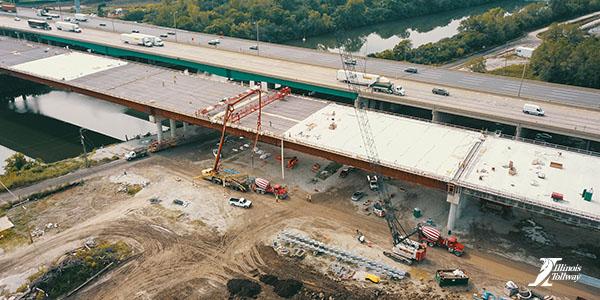Tolling Points
President Biden’s American Jobs Plan Needs a Full Toolbox of Funding Options

Nearly a week after U.S. President Joe Biden traveled to Pittsburgh, PA to unveil his American Jobs Plan, one conclusion is crystal clear—love it or hate it, this is an infrastructure program like none other in a generation or more.
One of its cornerstones is a proposal to spend $115 billion on repairing bridges, highways and roads, $20 billion on road safety and $85 billion to modernize transit systems. But it doesn’t end there—not nearly.
To its supporters, the plan extends beyond a traditional focus on roads, bridges and power lines to confront modern challenges that have been accumulating for years, sometimes for many decades—from broadband access to decarbonization, from job creation to racial justice and equity. To its critics, the administration is overreaching in its determination to broaden the very definition of “infrastructure”.
Biden promised nothing less when he announced a “once-in-a-generation investment in America” during his address at the Carpenters Pittsburgh Training Center.
“Regardless of your background, your color, your religion, everybody gets to come along,” he said. “It’s the largest American jobs investment since World War Two. It will create millions of jobs, good-paying jobs. It will grow the economy, make us more competitive around the world, promote our national security interests, and put us in a position to win the global competition with China in the upcoming years.”
Referring to the combined clout of the American Jobs Plan and the American Families Plan, he added: “Is it big? Yes. Is it bold? Yes. And we can get it done.”
The cost of doing nothing
Within the hour of the President’s remarks, IBTTA released a statement welcoming the plan and the “robust debate” it’s already produced on the best path forward for American infrastructure.
“Rest assured the cost of doing nothing and kicking the can further down the road is enormous,” said IBTTA President Mark Compton, CEO of the Pennsylvania Turnpike Commission. “Investment in our nation’s infrastructure is an investment in America and our people. It boosts our economy and ensures global competitiveness while improving safety and quality of life for all Americans.”
He added that tolling “is a powerful and effective tool that has been used to fund and finance more than 6,000 miles of the most productive and heavily traveled highways in America. Giving states greater flexibility to use this valuable tool to meet their individual transportation needs is an important part of solving America’s infrastructure investment crisis.”
In an interview last week on The Peggy Smedley Show, IBTTA Executive Director and CEO Patrick Jones pointed to the high stakes surrounding the infrastructure plan. “The COVID-19 pandemic and the terrible weather we had this winter really point to the fragility of our infrastructure and the long overdue need to invest,” he said.
Uniting a divided Congress
It didn’t take long for divergent voices to make themselves heard on the Biden plan, with Transportation Secretary Pete Buttigieg and National Economic Council Director Brian Deese defending the plan while Senators Roy Blunt (R-MO) and Roger Wicker (R-MI) opposed it. But some of the surrounding commentary pointed to underlying values and goals that legislators on both sides of the aisle should be able to support.
“Biden’s plan harks back to the New Deal” introduced by President Franklin D. Roosevelt, writes Washington Post columnist Fareed Zakaria. But “where the spirit of the New Deal is sorely needed today is in the cost, efficiency and transparency of these kinds of projects.” The Great Depression-era Works Progress Administration (WPA) “was surprisingly well-run”, he adds, getting big projects done quickly and administering public funds with scrupulous care.
That same investment is needed now, Zakaria stresses, to stop America from falling farther behind. “The United States used to spend as much as 3 percent of its gross domestic product on transportation and water infrastructure,” but “that number is now closer to 2 percent,” he notes.
If Congress is looking for proven, seasoned leadership from an industry with a track record for delivering big, challenging projects on time and on budget while looking out for community priorities…tolling agencies know how to do that, have a proven record and they’re eager to pitch in. The early pushback on the tax increases baked into the American Jobs Plan is just the latest reminder that it takes a full toolbox of funding and financing options to get a major infrastructure plan done. And the tolling community is in it for the long haul.




0 Comments